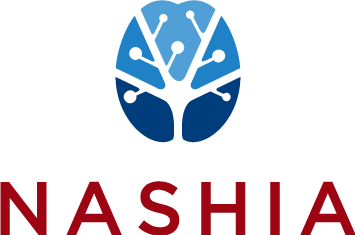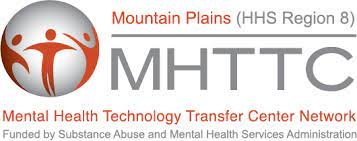Join the Mountain Plains Mental Health Technology Transfer Center (MHTTC) and the National Association of State Head Injury Administrators (NASHIA) for this exciting two-part series on Peer Support best practices for providers and individuals working and living with people who have a Traumatic Brain Injury (TBI).
When experiencing a life-changing event such as a brain injury, peer support can be a key factor in moving through the recovery process. Individuals who have successfully navigated a similar journey can have an incredible impact on others who are struggling. Peer support can expand successful outcomes into the community and help with emotional, social, academic, and vocational success.
These presentations on best practices approach for providing brain injury-informed peer support will provide attendees with the following:
Session 1: Workshop Wednesday, 2/22/2023 | 12:00 pm MST - 1:00 pm MST
• Background on the merits of brain injury-informed peer support.
• An overview of brain injury-specific peer support models.
Session 2: Wednesday, 3/01/2023 12:00 pm MST - 1:00 pm MST
• Strategies for integrating brain injury-informed practices into existing behavioral health peer support.
• Resources and tools
Speakers:
Judy Dettmer has been working in the field of brain injury for 30 years. Ms. Dettmer serves as NASHIA’s Director for Strategic Partnerships and a Technical Assistance Lead for the Traumatic Brain Injury Technical Assistance and Resource Center at the National Association of State Head Injury Administrators.
Ms. Dettmer has worked extensively with adults, children and family members of individuals with brain injury. She has provided direct and systems consultation to improve the lives of individuals with brain injury. Judy has also assisted with research efforts related to brain injury and has conducted countless presentations, classes and seminars on brain injury both in the state of Colorado and nationally.
Ms. Dettmer has provided technical assistance to numerous states on topics including but not limited to; screening on brain injury; developing infrastructure within state systems; interagency partnership development; and creation and management of advisory boards and councils.
Judy has become a national leader in the field of criminal justice and brain injury, developing screening, identification and accommodations protocols in Colorado that have been routinely modeled by states.
Ms. Dettmer is currently a co-facilitator for the National Collaborative on Children’s Brain Injury.
Anastasia Edmonston
With more than 30 years of experience in the field of rehabilitation services for individuals with traumatic and acquired brain injuries, Anastasia has worked as a clinician, program coordinator, vocational rehabilitation counselor and federal grant coordinator. Over the past 15 years, she has incorporated her clinical expertise and passion for advocacy into developing and delivering workshops, webinars and training to a variety of audiences that focus on how to identify and appropriately serve individuals who are living with brain injury.
Having completed a virtual training and facilitation course, Anastasia is a versatile trainer, able to reach diverse audiences. She has presented to professionals working in the behavioral health, aging, vocational rehabilitation, and intellectual disabilities services field as well as public safety and law enforcement, among others. Anastasia also trains and consults with her colleagues in the brain injury community regarding the link between brain injury, mental health and addiction to enhance their ability to provide comprehensive services and supports. Anastasia is a certified Person-Centered Thinking Instructor through the Learning Community for Person Centered Practices, has studied with and continues to be mentored by Diane Grieder, national expert and author of several books on Person Centered Planning for individuals with mental health and addiction challenges. A Mental Health First Aid Instructor since 2014, Anastasia is certified to teach the Adult and Older Adult curriculums.

